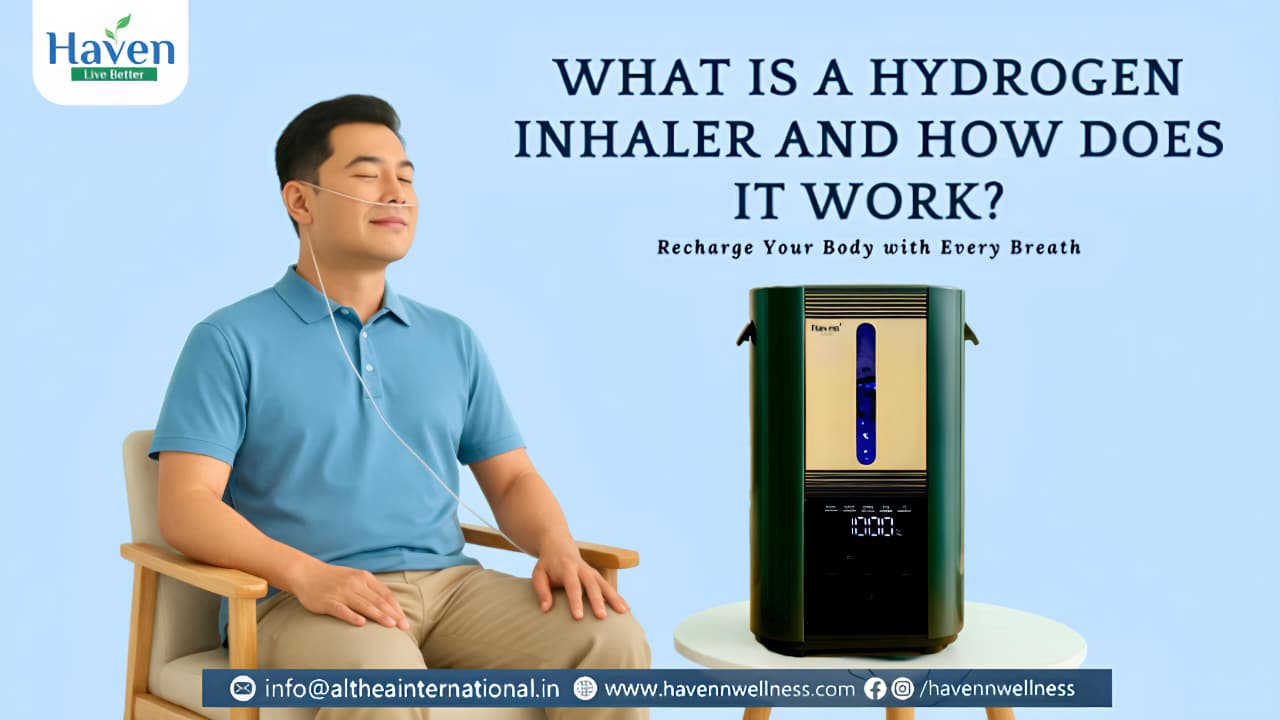In recent years, wellness enthusiasts and medical researchers alike have turned their attention to an unexpected yet powerful element—hydrogen. While it’s the simplest and most abundant molecule in the universe, hydrogen’s role in supporting human health has gained increasing attention through a method called hydrogen inhalation therapy.
But what exactly is hydrogen inhalation? And how can breathing in this invisible gas improve your well-being?
Let’s explore.
What Is Hydrogen Inhalation Therapy?
Hydrogen inhalation therapy involves breathing in molecular hydrogen gas (H₂), often through a device called a hydrogen inhaler. These machines deliver a controlled stream of high-purity hydrogen, allowing it to enter the lungs, diffuse into the bloodstream, and reach cells throughout the body.
Far from being just a wellness trend, hydrogen therapy is being studied for its potential to reduce oxidative stress, inflammation, and support cellular health—factors that influence a wide range of health issues, from aging to chronic disease.
Top Benefits of Hydrogen Inhalation
1. Fights Oxidative Stress
Oxidative stress is caused by an imbalance between free radicals and antioxidants in the body. It’s linked to aging, chronic illness, and tissue damage.
Hydrogen acts as a selective antioxidant, neutralizing harmful free radicals and helping your body maintain balance at the cellular level.
2. Reduces Inflammation
Whether it’s joint pain from arthritis or inflammation from other chronic conditions, hydrogen therapy may help. Studies have shown that hydrogen can lower inflammatory markers, leading to potential relief from pain, swelling, and fatigue.
3. Supports Recovery in Chronic Illness
Cancer patients and individuals with chronic conditions like Parkinson’s or diabetes often experience fatigue and cellular damage.
Hydrogen inhalation may support these patients by improving energy levels, protecting healthy cells, and promoting cell regeneration.
4. Improves Skin Health
While not the primary focus, some users report brighter, clearer skin and reduced signs of aging. This may be due to hydrogen’s ability to combat oxidative stress—one of the root causes of premature aging.
5. Boosts Cognitive Clarity
Because hydrogen can cross the blood-brain barrier, it may help reduce neurological inflammation and support mental clarity, focus, and memory—making it promising for neurodegenerative diseases.
6. Safe and Non-Invasive
Hydrogen inhalation is gentle and safe for daily use, especially with quality machines like the Haven Hydrogen Inhaler, which delivers high-purity (99.99%) hydrogen gas. It’s non-invasive, easy to use at home, and suitable for users of all ages—especially those over 50 seeking health support.
How to Get Started
To experience the benefits, you’ll need a certified hydrogen inhalation machine. Devices like the Haven Hydrogen Inhaler are designed with safety, purity, and ease in mind. Users typically inhale hydrogen for 30–60 minutes daily—either in one sitting or split throughout the day.
Small Molecule, Big Impact
Hydrogen may be invisible, but its effects on health are increasingly hard to ignore. As more studies explore its therapeutic power, hydrogen inhalation is emerging as a promising ally in the world of natural wellness and chronic care support.
Whether you’re seeking relief from inflammation, support during recovery, or a daily boost in well-being, hydrogen inhalation could be a breath of fresh air—literally.
FAQ-
Hydrogen inhalation therapy involves breathing in molecular hydrogen (H₂) gas through a specialized machine.
Yes, it is generally considered safe when done using a certified, medical-grade device like the Haven Hydrogen Inhaler. Always follow the user manual and consult your doctor if you have pre-existing conditions.
While not a cure, hydrogen inhalation may support the body during chronic illnesses by reducing inflammation and oxidative stress, which are commonly linked to these conditions.
Hydrogen gas is odorless, non-toxic, and generally well-tolerated. No major side effects are reported when used correctly. However, individuals with specific health concerns should consult their physician before starting.













